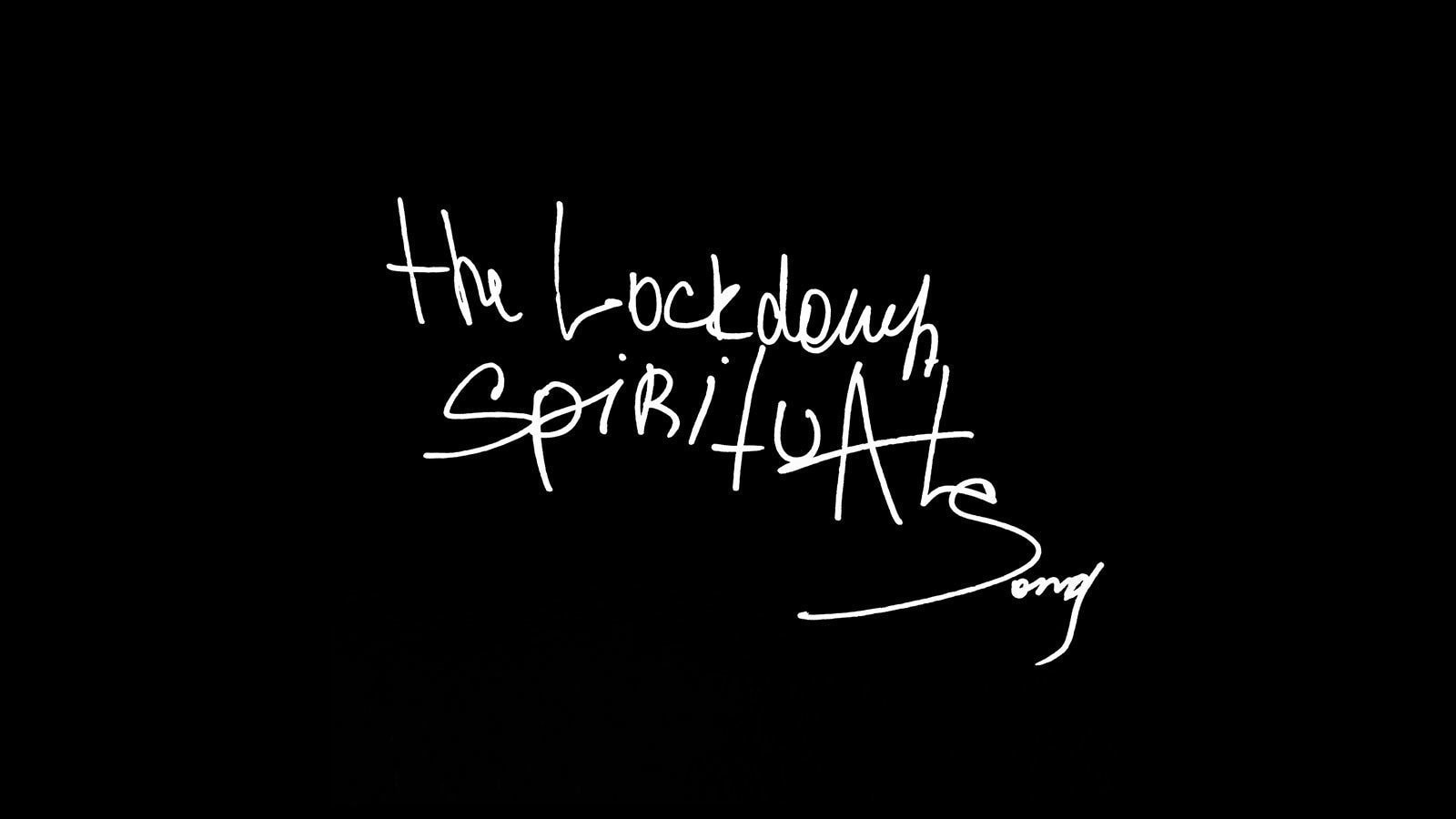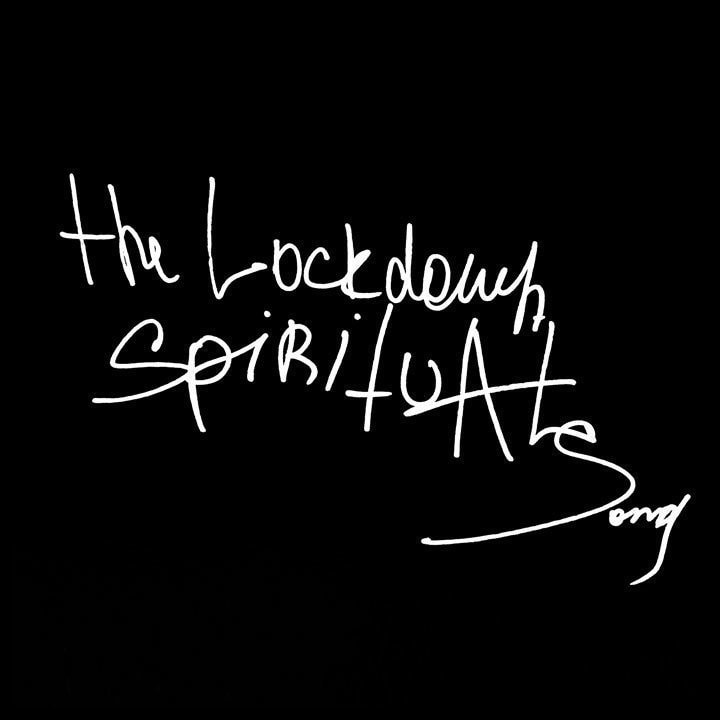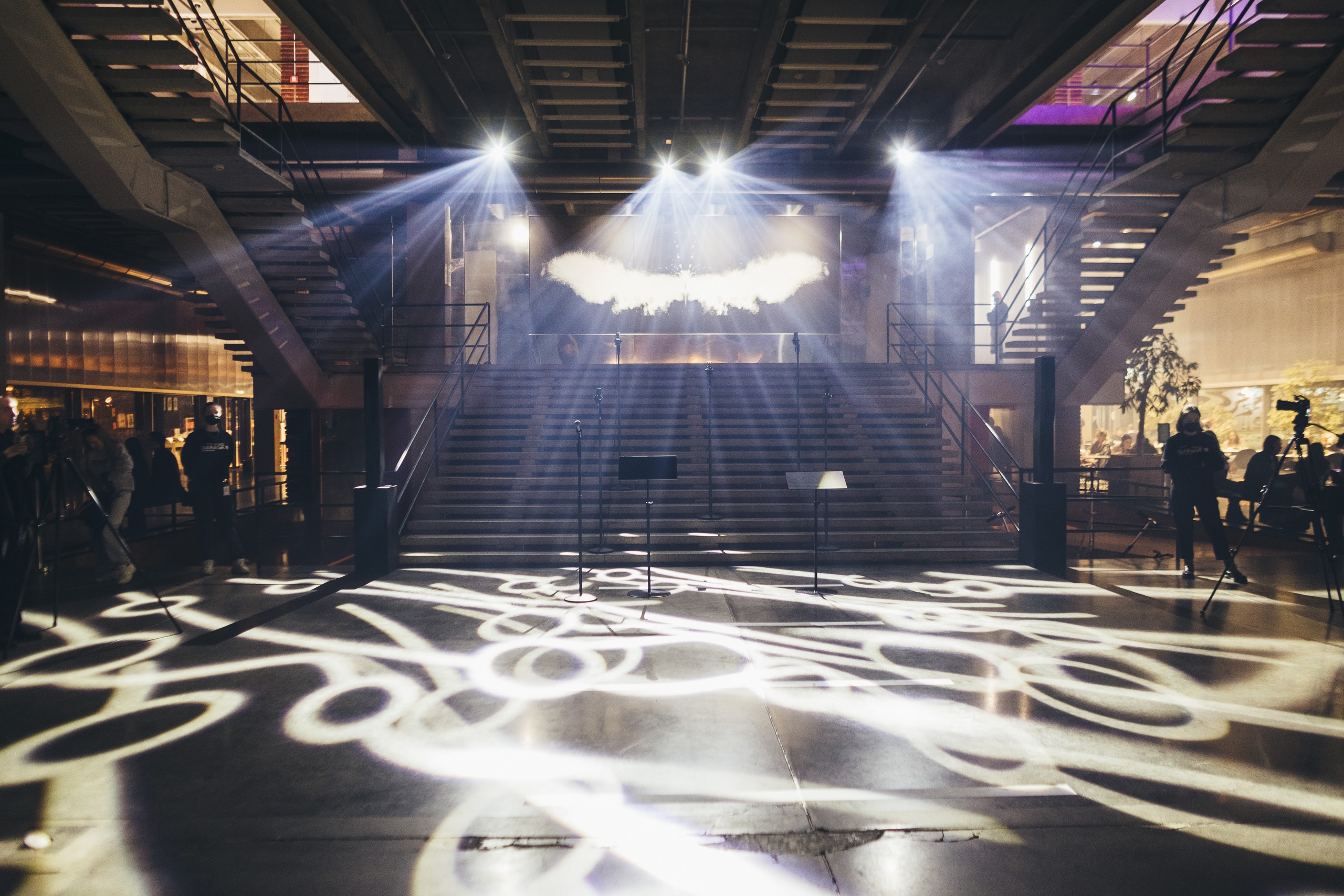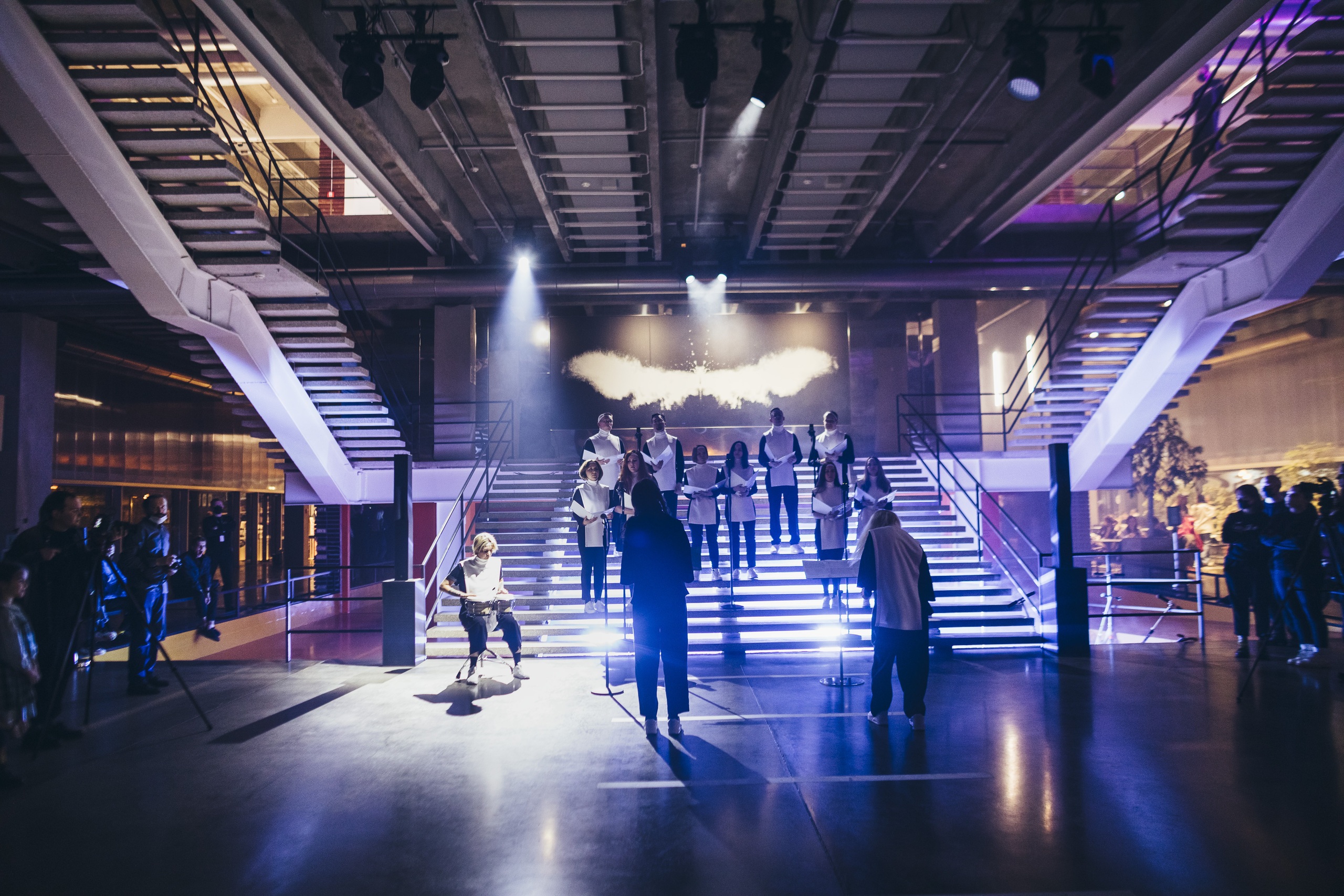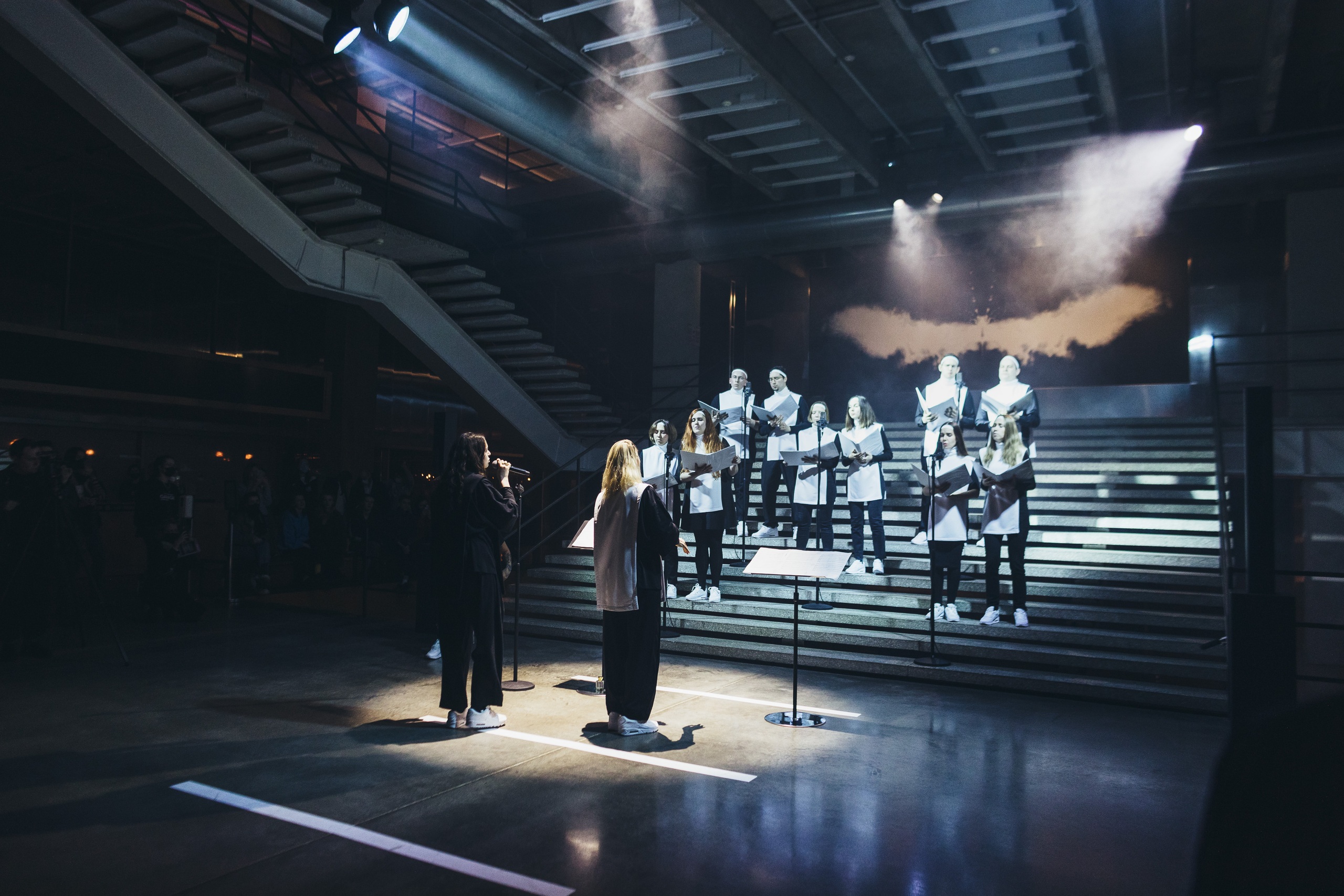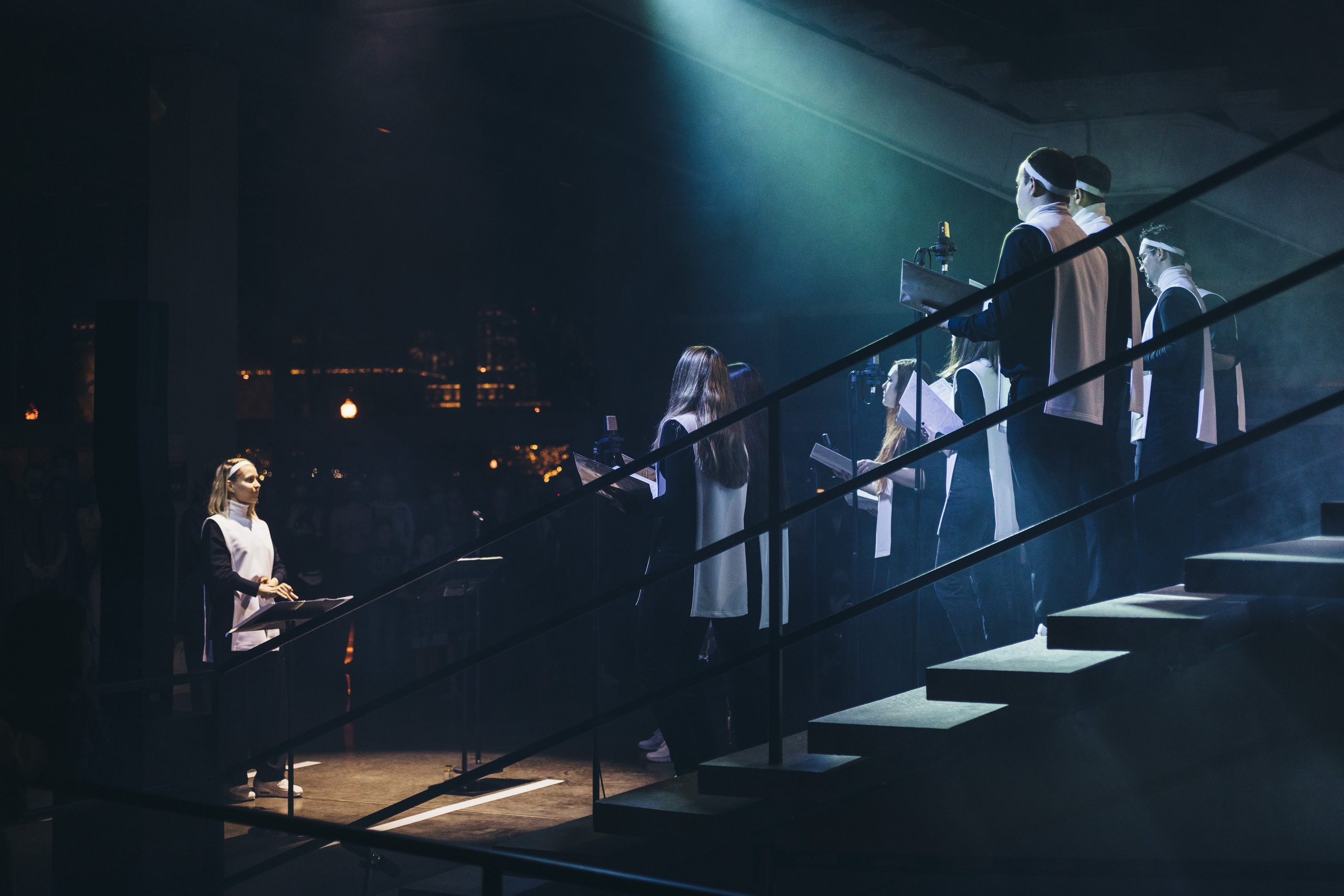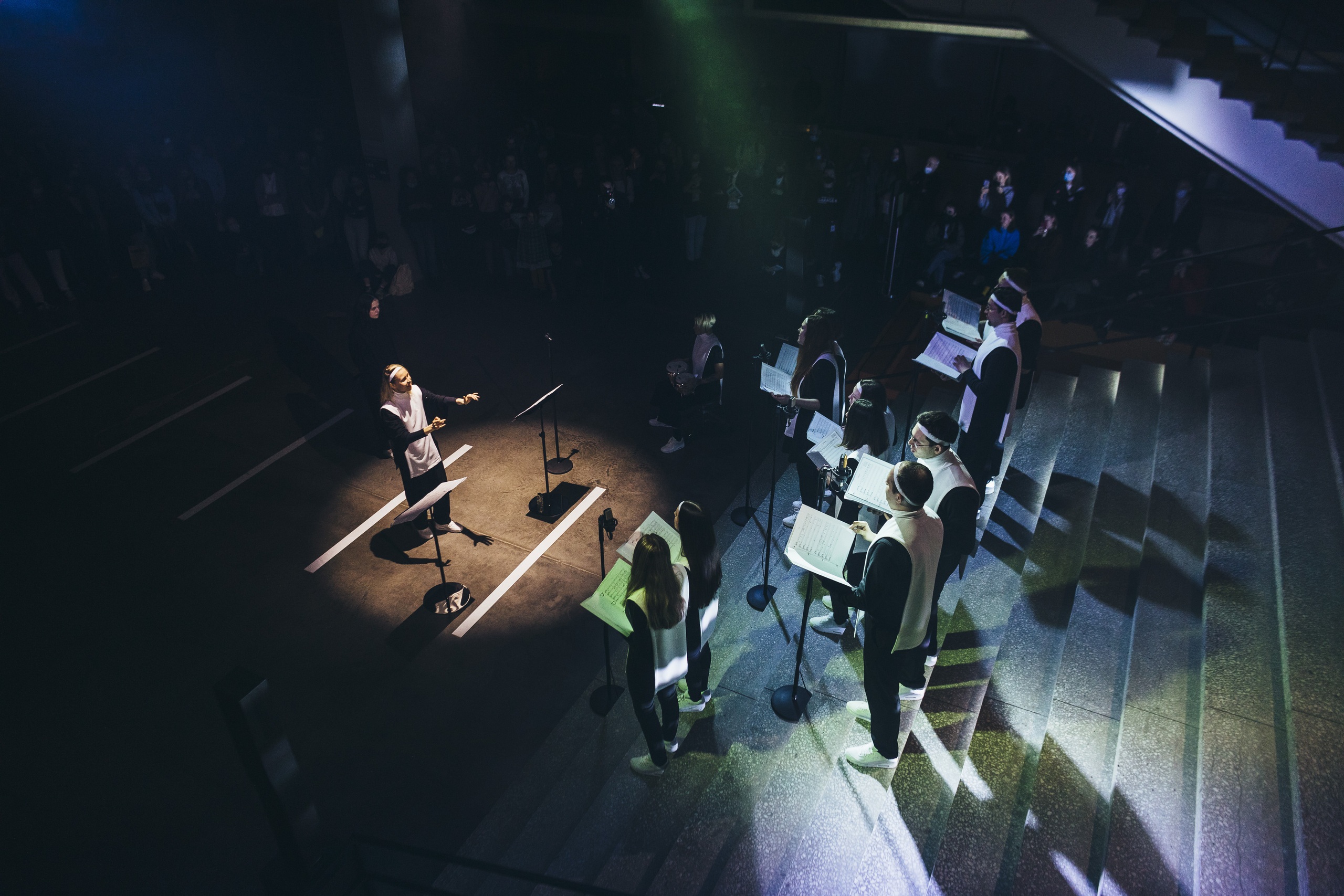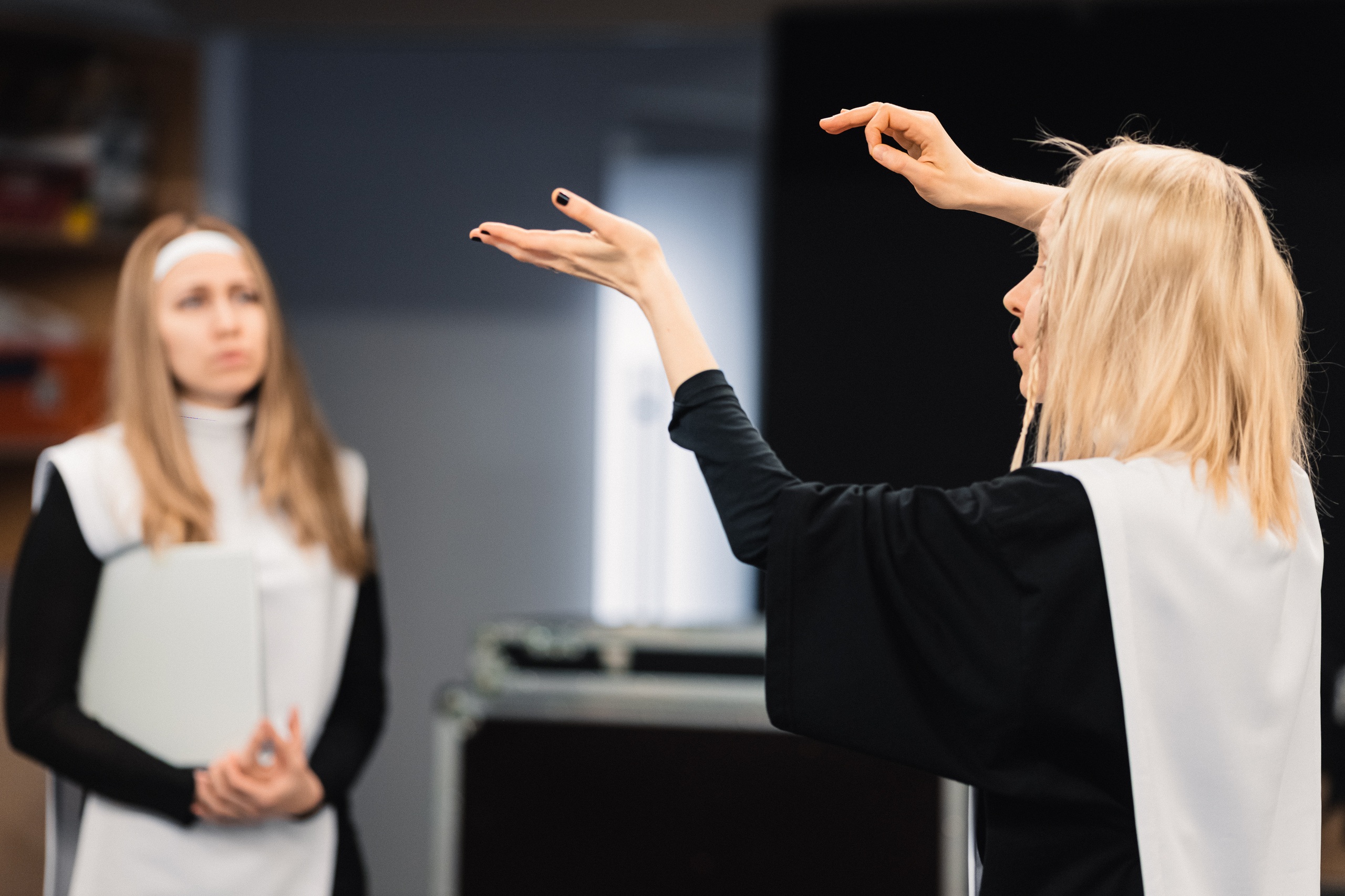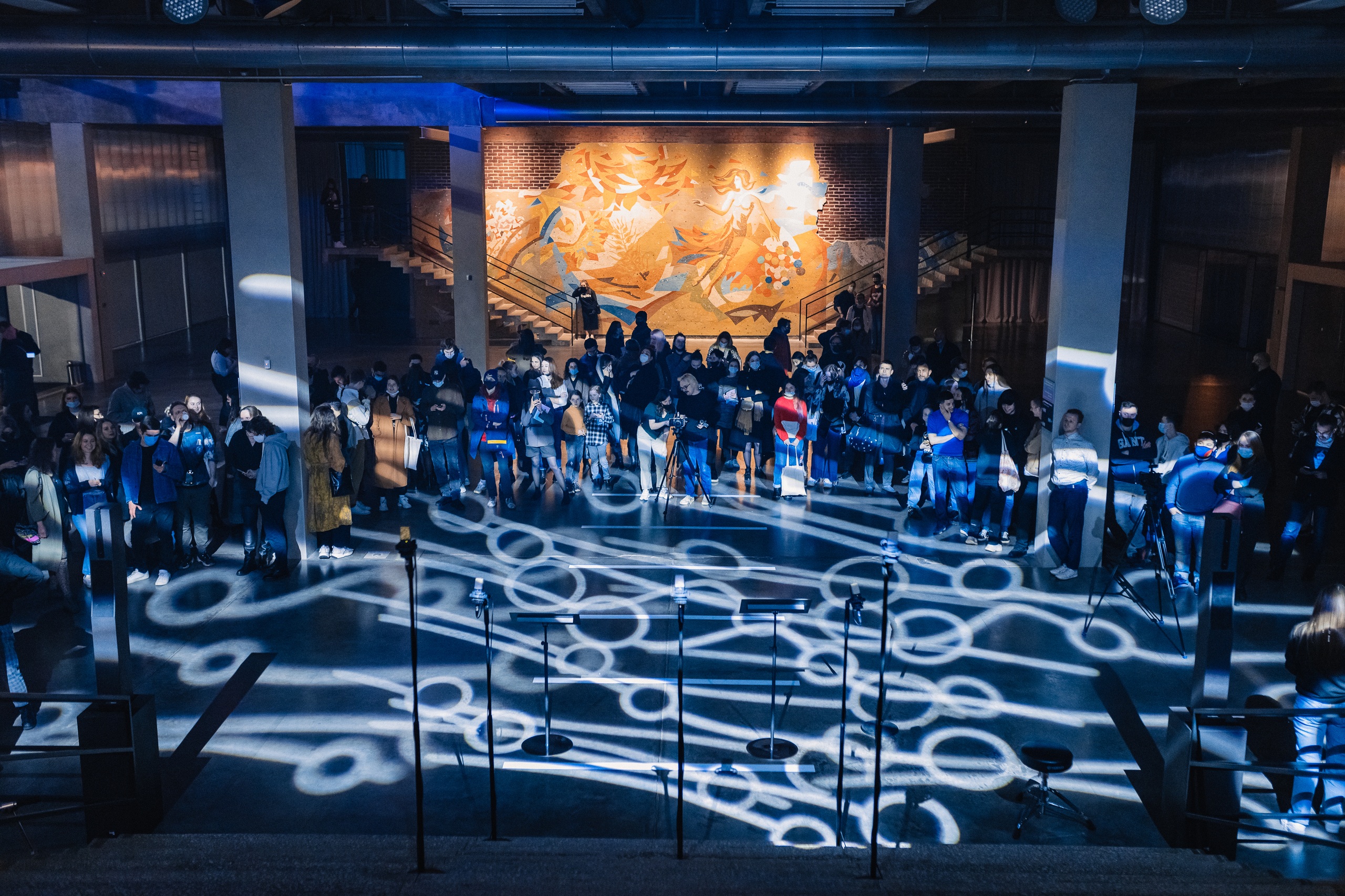The spiritual is a deeply rooted genre of African-American musical culture, a spiritual predecessor to the secular blues and a kin to gospel institutionalised by the church.
The emergence and later adaptation of the genre were closely connected to the history of American slavery and the merging of African traditions with Christian teachings. Like the blues, spirituals, or sad songs, are filled with melancholy brought on by hardship and loneliness, yet, like Bible stories, they carry a promise of salvation and a better lot and incorporate a therapeutic, soul-saving element.
Genda Fluid (the alter-ego of artist Antonina Baever) wrote the lyrics for The Lockdown S-song in self-isolation during the COVID-19 pandemic. She describes her mood at the time as “things are not great, but it’s not desperate yet.” This mood has inspired her to choose a medium she has not worked with before, but which felt natural under the circumstances. Borrowing its narrative and musical structure from spirituals and blues, The Lockdown S-song features a refrain repeated over and over with increasing tension, similar to a blues verse, and builds the interaction between the soloist and the choir based on the “question-answer” principle key to both genres. The song tells the story of forced solitude and yearning for collective interaction (Lockdown, I’m on my own), aggravated by the acceptance of one’s fate (Baby, I got used to love you from far away). Salvation comes from the digital space, which gifts the protagonist with freedom (And I am down for you online, I feel free, I feel fine) and the long-awaited reunion (And I am down for you online). However, both the freedom and the reunion prove to be ephemeral, and Genda Fluid “opens up the hidden world and transforms it into a real one” (Kazimir Malevich), releasing The Lockdown S-song in the museum space as a collective project.
Yet, rather than protest culture, Genda Fluid sees her work as inspired by the occult. This is a recurrent theme in her practice, often revealing elements of “secret knowledge” and mystical connections in the habitual. In her recent project The Maleficent Power of Art. Сhamber Sonata, she studied the unusually irregular proportions of Black Square and interpreted the name of its creator as “male witch.” Genda Fluid uses the notion of a spiritual not so much a reference to spiritual songs as to Aleister Crowley’s book of poetry Songs of the Spirit, and in her work the gospel responsory structure becomes a collective liberating mantra.
Conductor, arrangement for choir: Ekaterina Steppe
Percussion: Kristina Ilyina
Choir: Gulya Kalinina, Yazilya Mukhametova, Tatyana Stepanova, Marina Vulf, Viktoria Goncharova, Lyubov Smirnova, Georgy Bolotov, Anton Dvortsevoy, Daniil Kuchma, Grigory Pyankov
Costumes: Maria Smirnova / Inshade
Background image: Alexander Obrazumov
Editing: Arnold Veber
Aroma Stylist: Dmitry Potemkin
The performance is part of the public program for the exhibition Garage Live.
Please note, that a stroboscope will be used during the performance.
